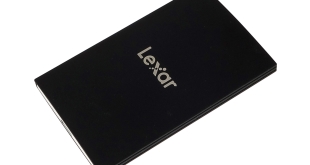Not many things will increase the performance of an existing system as much as GPU, CPU and SSD. KitGuru spends a lot of time in the Lab looking at this kind of thing, so we know what we're talking about. While every PC has some form of CPU and GPU, how many of us will be buying the third part of the (un)Holy Trinity in 2010?
Over the past few weeks KitGuru has been trawling the bars around every major SSD vendor, hoping to catch some kind of figure about the size of the UK market for 2011. It's been dirty work, but someone has to do it, because you – the KitGuru reader – want to know. You demand market knowledge so, damn it, we're gonna supply!
After cross-referencing with a few experts, we're now prepared to put our marker in the ground.
120,000 SSDs will ship in the UK in 2011, not including those already present in PCs and notebooks when they arrive pre-assembled in the country.

We're talking about SSDs that might reasonably move through the UK channel. By channel, we mean from the time a product arrives from a manufacturer into a UK distributor/reseller and then onto a customer (that's you).
So the next question, naturally, is “How much money is in that market, what's that market worth?”
This will change with the advent of the next-gen drives around October. As the world's biggest plants move to the next process (i.e. shrinking the technology to allow more memory in the same space, and at the same price), you will see a price drop of around 33% per product. Also, we'd expect most SSD products that sell into the UK will be toward the budget/value end of the market.
KitGuru's own hands-on, experiential testing has shown that 64-80GB is the sweet spot. Smaller than that is a pain, unless you are using something like a pair of 40GB Intel X25 drives strictly for ultra-fast booting. Right now, 64GB drives are around £120 and the 80GB drives are around £150. The average of £120 and £150 is £135. The rest of the sales in the market will pull that figure up, so let's say that the existing price for an average drive is around £150. After the new technology comes to market, we'll see the existing average drop to around £100.

That gives us a market of around £12m. Even if we push it up for enterprise drives etc, the local UK SSD market is still unlikely to be worth more than £15-20m in 2011. That's probably less than 1/6th of the value of the local graphics market.

Once Intel ramps up the 22nm products for sale in the last quarter of this year, you can expect (a) the turbo button to be pressed on performance and (b) a price war that will make Mr Pink's shirt look like a walk in the park.
KitGuru says: New technologies breaking through is all about the tipping-point. Up to a certain price point, there is little demand and everyone sees it as a luxury. Once a tipping-point price has been hit, then everyone sees it as a must-have and volume shoots up. With SSD, that's probably going to be either 64GB drives for £49 ($75) or 160GB for £99 ($150). That's what we think.
 KitGuru KitGuru.net – Tech News | Hardware News | Hardware Reviews | IOS | Mobile | Gaming | Graphics Cards
KitGuru KitGuru.net – Tech News | Hardware News | Hardware Reviews | IOS | Mobile | Gaming | Graphics Cards


